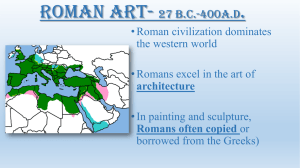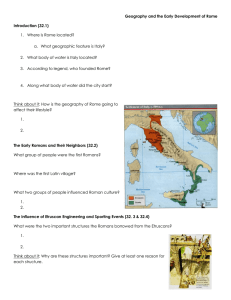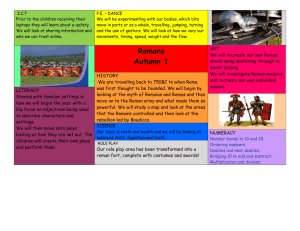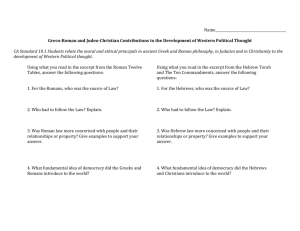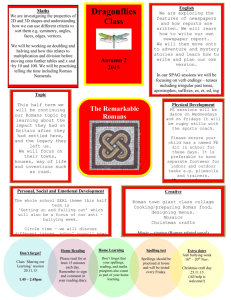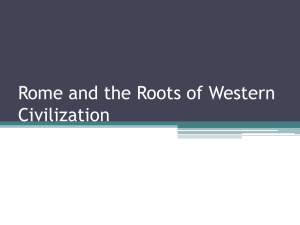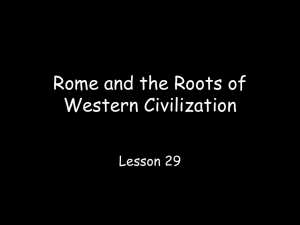The Roman Way of Life: Lesson 1
advertisement
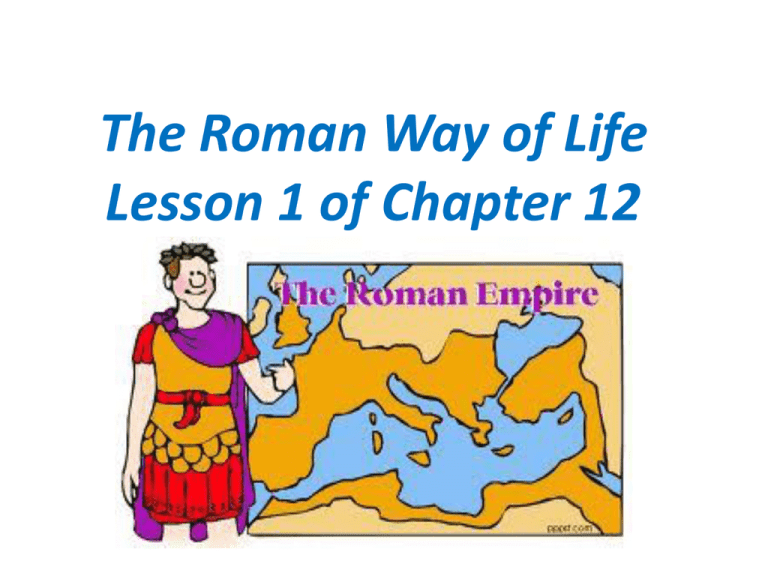
The Roman Way of Life Lesson 1 of Chapter 12 The Empire’s Chief City Rome • Carefully planned city with over 1 million people within its population • Wealthy Romans lived in large homes on the city’s hills • Most Romans lived in crowded, noisy, dirty neighborhoods • To gain the support of Rome’s poor, political leaders offered “bread and circuses” The Roman Family • When Rome was a republic, large families were common • The father held all the power within the family • In later times, fathers lost some of that power, families had fewer children and Roman were more likely to get divorced and remarry • Wealthy Roman children were given an education at home • As they grew, only boys received further education outside of the home. Poor families received no education Science and Art • In science, Romans were influenced by a Greek named Galen, he emphasized the importance of anatomy • Ptolemy was an important Roman scientist. He focused on the motion of planets and stars Ptolemy Galen Engineering Skills • The Roman’s built roads that allowed the soldiers to travel quickly to different regions • Merchants used the roads for travel and trade • The engineers also built aqueducts which carried water over long distances to people within the cities Art and Architecture • Greek sculptures differed from Roman sculptures • While Greek statues were meant to reflect perfection in people, Roman statues showed flaws such as wrinkles and warts • Vaulted ceilings were designed by placing arches next to each other in rows • The use of volcanic ash, lime and water made for an extremely sturdy mixture used on many ancient buildings that still stand today. Literature • Romans respected writers and philosophers. They were continuously searching for the meaning of life • The Romans honored their gods, but, also wrote comedies about them. • They were not afraid to poke fun at the gods, political leaders and heroes Theatre and Language • One of the most popular past times in Rome was attending plays • All roles were played by men. Women were only permitted to play as mimes • Latin became the language for government, trade and learning until about a.d. 1500


